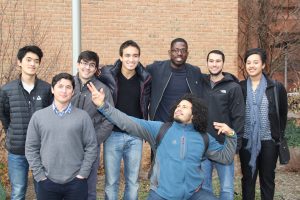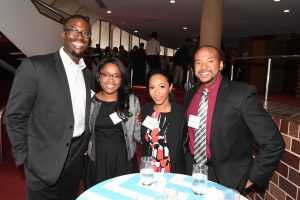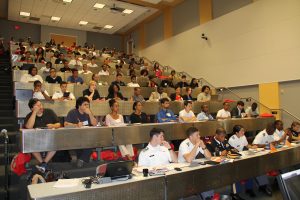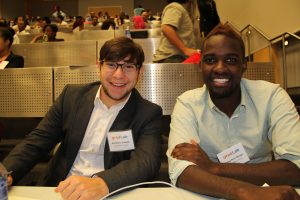UMBC has secured funding for several programs that are designed particularly to enhance the support and experience of underrepresented minority graduate students and increase the number of diverse scholars in academia. For example:
Bridge to the Doctorate Fellowship – https://lsampbd.umbc.edu
The Louis Stokes Alliances for Minority Participation (LSAMP) program assists universities and colleges in diversifying the STEM workforce through their efforts at significantly increasing the numbers of students successfully completing high-quality degree programs in science, technology, engineering, and mathematics (STEM) disciplines. Senior-level LSAMP alliances are eligible for Bridge to the Doctorate (BD) support. BD funding provides eligible students with financial support for two years of graduate study.
The LSAMP program is managed by the Division of Human Resource Development (HRD), which is part of the Directorate for Education and Human Resources (EHR) of the National Science Foundation (NSF). The University System of Maryland’s LSAMP BD Program includes UMBC and the University of Maryland College Park. Proposals for LSAMP BD programs are submitted to NSF by UMBC and UMCP in alternate years.
Highly valued activities include regular BD meetings, mentoring of students, resources to support annual student participation at professional meetings, seminars on productive academic efforts, demystifying degree programs, and available career options. A critical mass of twelve (12) LSAMP STEM graduate students is required under this activity. The NSF contribution to graduate student stipends is $60,000 over two years for each of twelve students.
If you want more information about this program, contact: Sunji Jangha sjangha@umbc.edu


IMSD Meyerhoff Graduate Fellows Program – https://meyerhoffgrad.umbc.edu
Funded by an NIH-MBRS Initiative to Maximize Student Development (IMSD) grant, the Meyerhoff Fellows Program focuses on promoting cultural diversity in the biomedical sciences at the graduate level and increasing diversity among students pursuing Ph.D. degrees in the biomedical and behavioral sciences (fields external but related to biomedical and behavioral sciences are included). Now in its 22nd year, the program attracts students from such institutions as Duke, Emory, Stanford, and the University of Delaware.
If you want more information about this program, contact: Justine Johnson, bivins@umbc.edu

GEM Fellowship – http://www.gemfellowship.org/students/gem-fellowship-program/
GEM is a network of leading corporations, government laboratories, top universities, and top research institutions that enables qualified students from underrepresented communities to pursue graduate education in applied science and engineering.
GEM’s fellowship programs span the entire recruitment, retention, and professional development spectrum. GEM’s principal activity is the provision of graduate fellowships at the MS and Ph.D. levels coupled with paid summer internships. GEM also offers fellowships without paid summer internships through our GEM University and Associate Fellowship programs.
If you want more information about this program, contact: Sunji Jangha sjangha@umbc.edu

